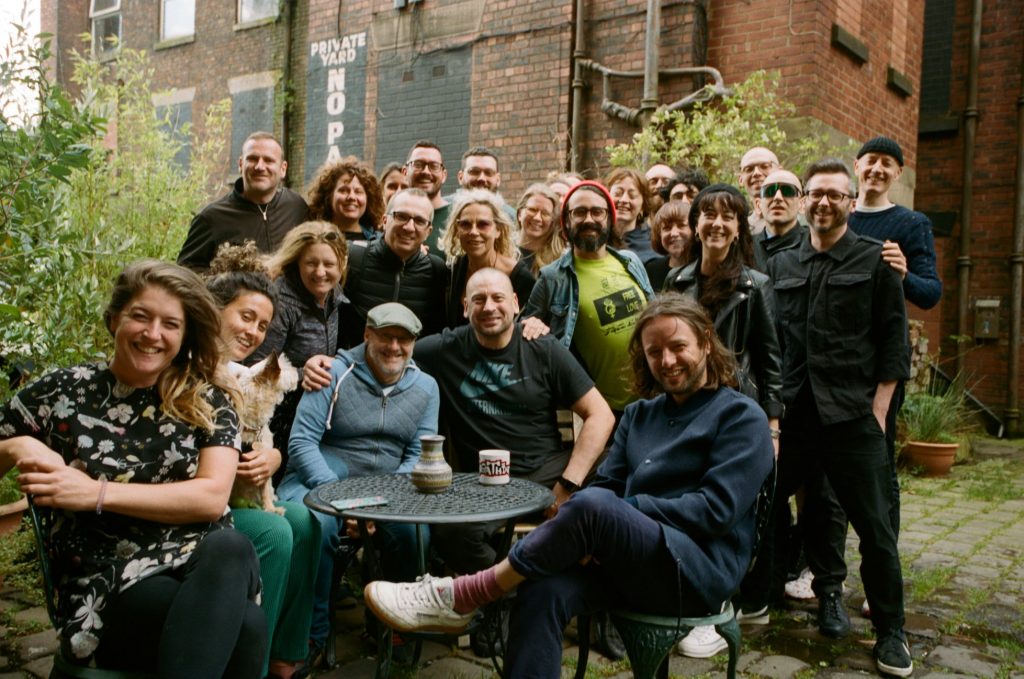Renowned arts institution Islington Mill, in collaboration with Salford City Council, has been awarded a £3.3m grant from the European Regional Development Fund (ERDF) to create a new artist-led community around the Islington Mill site – ‘The Other City’.
In what could be one of the last portions of European investment money into the UK, the £3.3m grant has been awarded towards the £6.83m project to build what Salford’s City Mayor Paul Dennett has described as a model to help “communities resist gentrification”.
In addition to renovating the Mill’s current role as a venue and workspace for artists The Other City will provide 25,000 sq. ft. of new creative workspace for creative SMEs.
Memories Of Living is the second COVID-response project from Islington Mill. We've invited some of our artists, staff…
Posted by Islington Mill on Wednesday, 2 September 2020
The ERDF funding supports the purchase and conversion of New Islington Mill to complete the heritage footprint of the historic mill and expand the Salford’s creative centre for generations of artists to come.
Maurice Carlin, one of the founding Directors at Islington Mill said
“Artists are experts in creativity and their ability to imagine our world differently will be in high demand across almost every sector and area of life over the next few years. The Other City will deliver a physical place, and a support programme, to equip all manner of artists and creatives to apply their skills and entrepreneurialism to the region’s recovery.
“Islington Mill was founded as an artist led community 20 years ago by artist and designer Bill Campbell. It is a place where experimentation and artistic freedom have, to date, supported over 4,000 people to become artists who have made a social, cultural and economic difference. Whether it was the Ting Ting’s at the start of the millennium or Drag SOS launched on Channel 4 last year, the artists of Islington have a common message that this community helped them turn ideas into reality and take their cultural products, services, celebrations and congregations to regional, national and global audiences and markets.
Introducing one of the artists behind our #masksforlife project, Rory Clifford! Rory has been instrumental in getting this project off the ground using his amazing mix of skills including sewing, web design and graphics. Check out his and other artist's masks through our website pic.twitter.com/JvRKBvjOZh
— Islington Mill (@islingtonmill) August 14, 2020
“The Other City will support artists to lead recovery across Greater Manchester, drawing on the learning and experience at Islington Mill, to grow new products and services; apply creativity to innovate in other industry sectors; bring new end uses to under occupied buildings and district centres; sustain national and global networks; and navigate new ways we can congregate, participate and celebrate together.”
As one of the 16 remaining heritage mills in Salford, Islington Mill needed funding for refurbishment to sustain its artist-led community into the 21st century.
Islington Mill sits in a part of Salford experiencing extensive change and development.
Salford City Mayor Paul Dennett said: “This is a hugely exciting project, and a unique opportunity to explore solutions for sustainable creative communities and local residents at a time when affordable rents are a huge issue facing many millions of people in our country.
“This is about protecting and cultivating the production of culture – not just the consumption of culture. Ownership is key and, moving forward, the project we are embarking on with the Mill will be crucial in creating models for communities to resist gentrification.
“It’s about putting power into the hands of local communities, recognising the huge cultural contribution made by the arts sector to the lives of Salford people, and providing a stable home and future for our residents and our creative community.
“This project is a testament to the importance of true partnership working between Islington Mill Arts Club and Salford City Council, drawing on their different strengths in achieving a common aspiration.”
The project has funds also being contributed by Salford City Council, Arts Council England, National Heritage Lottery Fund, Architectural Heritage Fund, The Women’s Organisation, Islington Mill Arts Club, founder Bill Campbell, by the innumerable artists and their audiences who contributed gigs, performances and art works, and 100 Temporary Custodians who bought into a shared ownership art-work donated by Maurice Carlin.
















Recent Comments